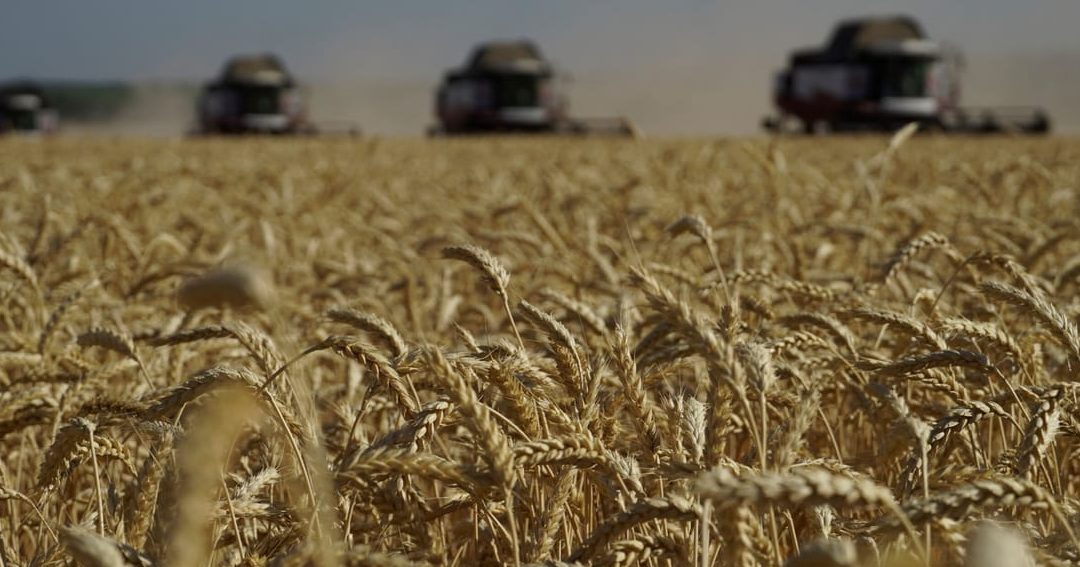As global food security faces renewed challenges, the Egyptian wheat market is poised to experience significant impacts. Egypt, one of the world’s largest wheat importers, is particularly vulnerable to fluctuations in global wheat supply and prices. A renewed global food crisis, driven by various factors such as geopolitical tensions, climate change, and supply chain disruptions, could have profound effects on Egypt’s wheat market. This article explores the potential implications of a global food crisis on Egypt’s wheat sector and what measures could be taken to mitigate the impact.
Current State of the Egyptian Wheat Market
Egypt’s Dependence on Wheat Imports
Egypt is heavily reliant on wheat imports to meet its domestic consumption needs. The country imports around 60% of its wheat, making it the largest wheat importer globally. The primary sources of Egypt’s wheat imports are countries such as Russia, Ukraine, and the United States. This dependence on imports means that fluctuations in global wheat supply and prices have a direct impact on Egypt’s food security.
Domestic Wheat Production
Despite its heavy reliance on imports, Egypt also cultivates wheat domestically. The country produces about 8 million metric tons of wheat annually, which accounts for roughly 40% of its total consumption. However, domestic production is insufficient to meet the demand, and the shortfall is covered through imports.
Impact of a Renewed Global Food Crisis
Rising Wheat Prices
A global food crisis often leads to increased wheat prices due to reduced supply or heightened demand. Factors contributing to a crisis may include:
- Geopolitical Tensions: Conflicts in major wheat-producing regions, such as Eastern Europe or the Black Sea, can disrupt supply chains and drive up prices.
- Climate Change: Extreme weather conditions, such as droughts or floods, can adversely affect wheat production and reduce global supply.
- Supply Chain Disruptions: Logistical challenges, including transportation bottlenecks and export restrictions, can further strain the global wheat market.
For Egypt, rising wheat prices can lead to increased costs for importing wheat, putting pressure on the country’s food subsidies and budget. The government may face higher expenses in procuring wheat, which could lead to increased bread prices and affect the affordability of staple foods for Egyptian consumers.
Food Security Concerns
Increased wheat prices and supply shortages can exacerbate food security issues in Egypt. The country’s reliance on wheat imports means that any disruption in global supply can lead to shortages and impact the availability of affordable bread, a staple food for many Egyptians. This could potentially lead to:
- Social Unrest: Rising food prices can lead to public dissatisfaction and unrest, particularly in a country where bread is a key component of the diet.
- Nutritional Deficiencies: Higher prices for staple foods can affect the dietary intake of low-income households, leading to nutritional deficiencies and adverse health outcomes.
Government Response and Policy Measures
To mitigate the impact of a global food crisis, the Egyptian government may implement various measures:
- Strategic Reserves: Building and maintaining strategic wheat reserves can help buffer against supply disruptions and price fluctuations.
- Diversification of Supply Sources: Expanding trade partnerships and diversifying sources of wheat imports can reduce dependency on a few suppliers and minimize risks.
- Support for Domestic Production: Investing in agricultural technology and providing incentives for domestic wheat farmers can boost local production and reduce reliance on imports.
Long-Term Strategies for the Egyptian Wheat Market
Strengthening Agricultural Resilience
In the long term, strengthening the resilience of Egypt’s agricultural sector can help reduce vulnerability to global food crises:
- Investment in Technology: Adopting advanced agricultural technologies, such as drought-resistant wheat varieties and improved irrigation systems, can enhance domestic wheat production.
- Sustainable Practices: Implementing sustainable farming practices can improve soil health and increase crop yields, contributing to a more stable supply of domestically produced wheat.
Enhancing Food Security Measures
Egypt can enhance its food security through comprehensive strategies:
- Improving Food Distribution: Efficient food distribution systems can help ensure that wheat and other staples reach consumers more effectively and at fair prices.
- Strengthening Social Safety Nets: Expanding social safety nets and food assistance programs can support vulnerable populations during times of food crisis and price volatility.
International Cooperation
Collaborating with international organizations and partners can provide additional support during global food crises:
- Participation in Global Initiatives: Engaging in global initiatives aimed at improving food security and addressing supply chain issues can provide Egypt with valuable resources and support.
- Trade Agreements: Negotiating favorable trade agreements and participating in regional trade partnerships can help secure more stable sources of wheat and other essential commodities.
A renewed global food crisis poses significant challenges for Egypt’s wheat market, given its heavy reliance on wheat imports and the potential for rising prices and supply shortages. By understanding the current state of the market and the possible impacts of a global crisis, Egypt can better prepare and implement strategies to mitigate risks. Through a combination of strengthening domestic production, improving food security measures, and enhancing international cooperation, Egypt can work towards a more resilient and secure wheat market in the face of global uncertainties.

